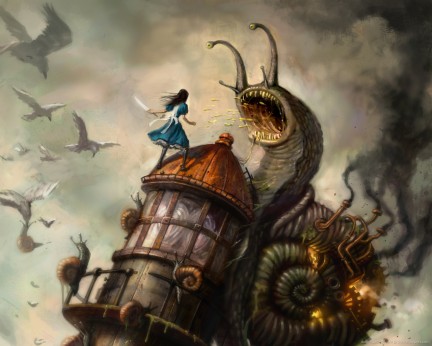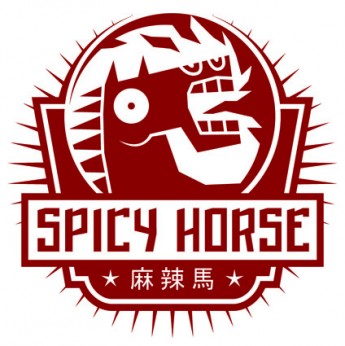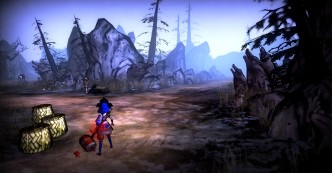
An Interview with American McGee
American McGee: The man is the founder of Spicy Horse, creator of the Alice series of games, and currently is pushing Akaneiro: Demon Hunters on Kickstarter. But perhaps you’d like to know more about the man who got his start working for ID, on such games as Wolfenstein and Quake. Read on, as we’ve got an interview featured after the break!
Jason: You’ve recently put your new game Akaneiro: Demon Hunters on Kickstarter. Can you tell us a little about the decision process behind going the free to play route?
American McGee: Since the start of 2011 our studio has been working on a number of titles built atop the free-to-play model. I like it because it gives players a chance to first try a game without paying for it, then decide when and if they want to spend money. We make sure to allow full access to all content for all players – whether they are paying or not. It’s really more like a time saving device for those who do want to pay. All of our games contain an in-game store where a variety of items can be purchased. But keep in mind that those same items can be earned simply by playing the game.
These days it seems the idea of F2P is gaining more and more traction among gamers – titles like Team Fortress 2, League of Legends and DOTA have really helped raise awareness and understanding. Still, there’s a right and wrong way to go about implementing this type of economy – and we’re doing everything we can to do it the right way.
Jason: You originally got your start as a tester for Wolfenstein 3D, and eventually went on to work on Doom and Quake for ID. Can you tell us a little about how you’ve grown as a game designer since your early days in the industry?
American McGee: It’s been 20 years since I first entered the games industry with id Software. It’s been a truly incredible ride filled with unexpected twists and turns. If you’d suggested 20 years ago that I’d someday be running my own development studio in Shanghai or speaking Chinese on a daily basis… I would have thought you were insane. The adventure has taught me one simple thing which I apply not only to game design but to life in general… to embrace the fact that I know nothing. Every day brings new surprises and new knowledge. More and more when I’m looking at a design issue, UI design or other aspect of our business, I’m reminding myself of this fact. This happens to align neatly with the fact that we’re becoming a much more data-driven business – utilizing data to drive our decision making process.
Jason: How do you think the gaming industry has changed as a whole since then?
American McGee: As mentioned, the industry is becoming much more data-driven. That links with the fact that we’re always online when we play games. Ubiquitous  online access has done more to drive design in the past couple of years than any other advance in technology. A lot of the core design elements remain the same – but access and mobile tech are opening up new audiences and design concepts at a phenomenal rate. We’re also seeing a reemergence of independent development now that online distribution has managed to overcome the hurdles put in place by a retail distribution model controlled by a publishing monopoly. I think we were in a Golden Age 20 years ago, around the time id was publishing the DOOM games… and we’re entering a new Golden Age today. It’s great to see the cycle repeating.
online access has done more to drive design in the past couple of years than any other advance in technology. A lot of the core design elements remain the same – but access and mobile tech are opening up new audiences and design concepts at a phenomenal rate. We’re also seeing a reemergence of independent development now that online distribution has managed to overcome the hurdles put in place by a retail distribution model controlled by a publishing monopoly. I think we were in a Golden Age 20 years ago, around the time id was publishing the DOOM games… and we’re entering a new Golden Age today. It’s great to see the cycle repeating.
Jason: I’ve noticed a trend of gamer designers who got their start in the late 80’s/early 90’s being attracted to going the mobile route lately. What has drawn you to mobile development via Spicy Horse?
American McGee: We’ve been dabbling with mobile development for a number of years now. Recently the focus became much more intense as we switched away from large console development – like the Alice: Madness Returns project we did for EA. Mobile and web are interesting because they are relatively “open” platforms – meaning we can self publish to those platforms without needing a publisher (like EA.) That means we get to control the tone and design of the products we build – and that we can establish a meaningful relationship with our audience.
From a business perspective, mobile and web just make sense. They are the fastest expanding platforms for games today – and likely will be into the foreseeable future.
Jason: I recently got a chance to talk to Sandy Petersen about working at ID in the mid 1990’s. Can you perhaps shed some light on the working culture there, and how it differs from Spicy Horse?
 American McGee: Spicy culture is designed to be exactly opposite of the sort of culture I experienced while working at id. For example, we put a lot of effort into promoting quality of life for our employees – which means we expect them to have a happy, healthy life outside of work. To that end we enforce core hours and solid planning to avoid overtime and crunch. The business is also run in a very transparent manner, so everyone in the company is aware of (and involved in) everything from where we are financially to why we’re making certain publishing or development decision. When I hire people (and when they read the employee guide) they hear that jerks, assholes and people who like to play politics aren’t welcome – and I fire people quickly for violating that expectation.
American McGee: Spicy culture is designed to be exactly opposite of the sort of culture I experienced while working at id. For example, we put a lot of effort into promoting quality of life for our employees – which means we expect them to have a happy, healthy life outside of work. To that end we enforce core hours and solid planning to avoid overtime and crunch. The business is also run in a very transparent manner, so everyone in the company is aware of (and involved in) everything from where we are financially to why we’re making certain publishing or development decision. When I hire people (and when they read the employee guide) they hear that jerks, assholes and people who like to play politics aren’t welcome – and I fire people quickly for violating that expectation.
Truth is, I don’t think id planned to have the culture they had back then – it just emerged naturally as a result of the personalities and power structures. And while we did plan our culture, it had little to do with my experiences at id. Every decision I made was based on a desire to build a strong and successful studio in a unique environment. China has historically been very difficult for Western game makers who open shop here. I’d like to think that our early culture planning has played a part in our still being here after 6+ years of business.
Jason: Your games always have an incredibly strong aesthetic appeal. What artists influence your work/unique style?
American McGee: This would be an excellent question to ask our artists and Art Directors. My secret to success is knowing how to surround myself with people more talented than I am. Also, I stole that quote :)
Jason: And last but not least, what’s your favourite game of all time?
American: I have to choose just one?! Well, in that case I’m going to go with Minecraft. It’s kept my attention since I first started playing back near the initial Beta release. It’s funny how it gets your brain going. More games should do that!
Thanks for taking the time to read this, and best of luck on your Kickstarter, I’m looking forward to playing the game.
Thank you for the opportunity. Hope you like the game!! :)
At this moment, you can find his game Akaneiro: Demon Hunters up on Kickstarter, which has also just been Greenlit on Steam. If you’d like to learn more about the man, you can find him on Twitter @americanmcgee.

